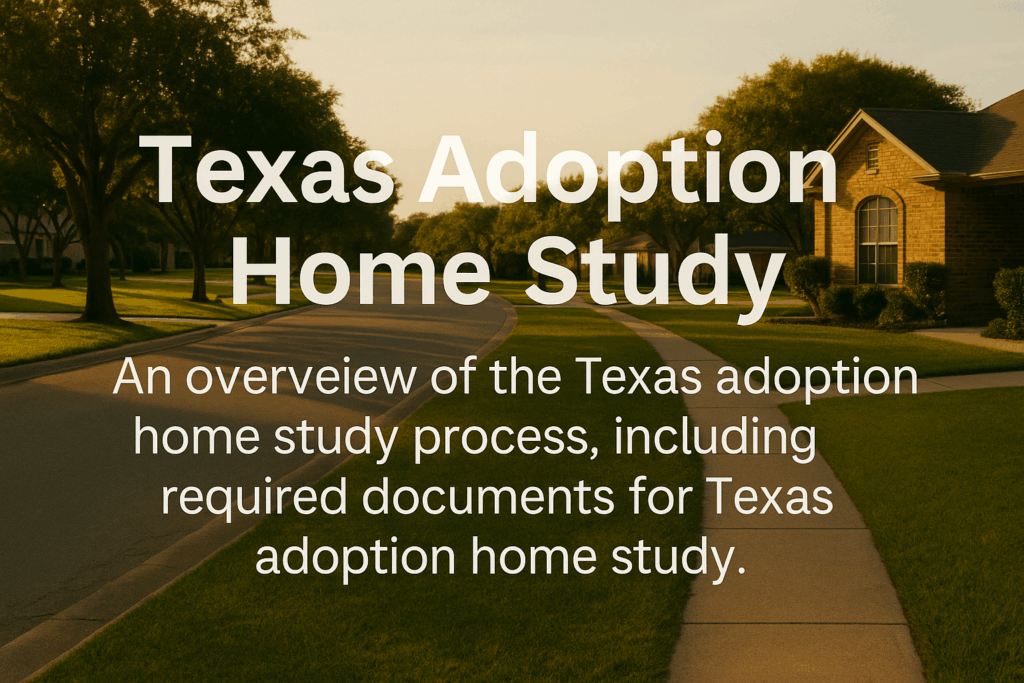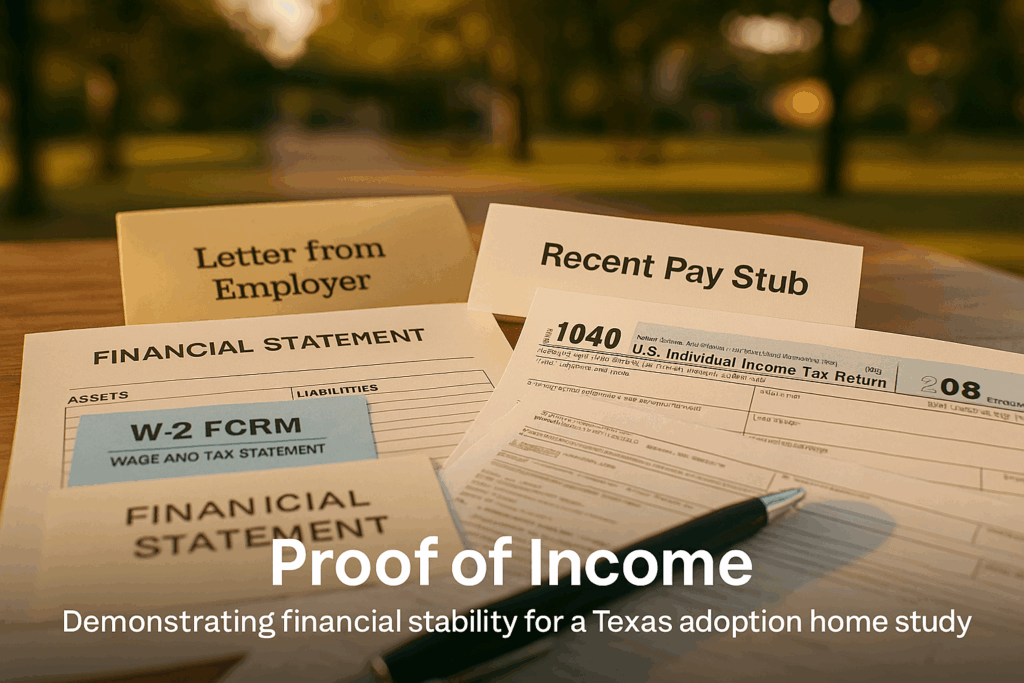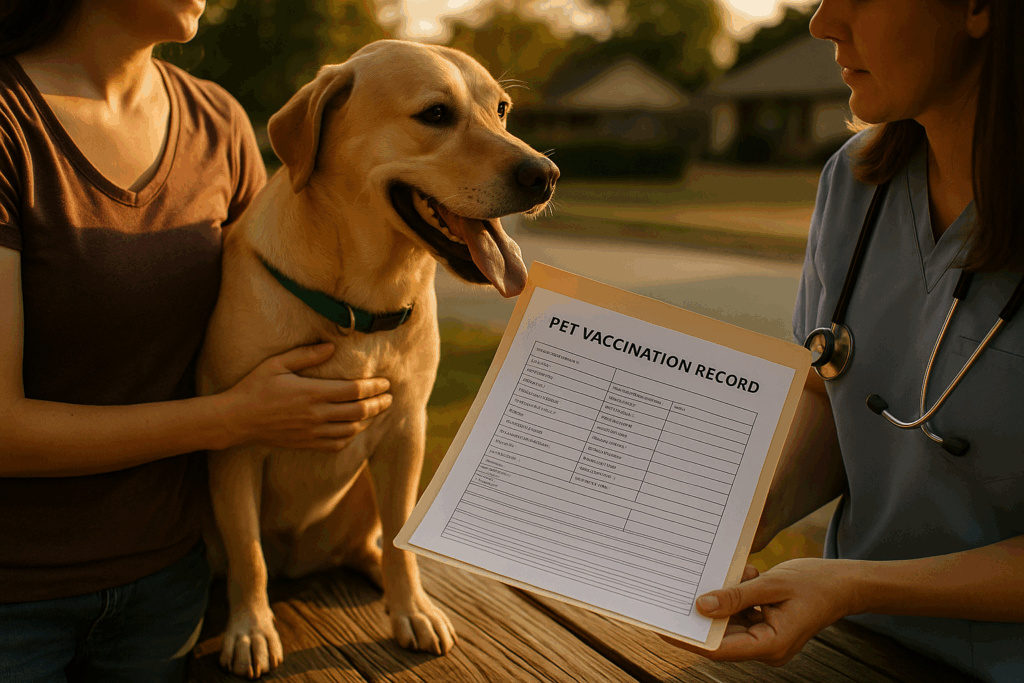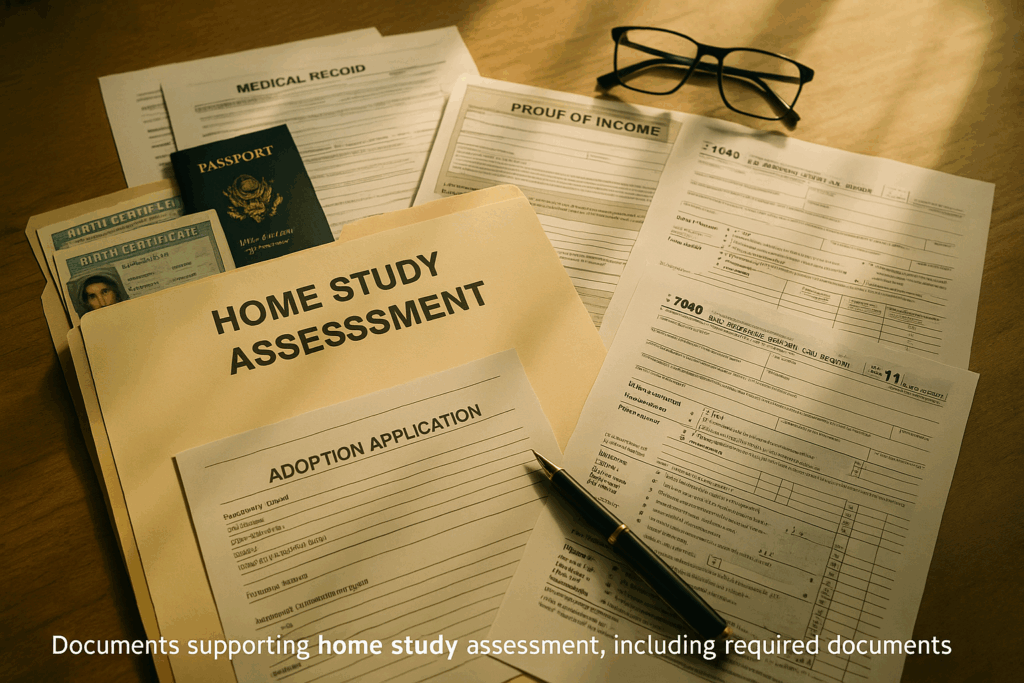
Ever tried juggling backpacks, school lunches, and bedtime stories while navigating the Texas legal system? Parenting is already a marathon—and if you’re in the process of adopting, divorced, or co-parenting, you’re doing it with one shoe untied and a permission slip stuck to your elbow. Let’s be honest: raising kids while dealing with paperwork and court orders can feel overwhelming.
That’s why we’re here. In this article, we’ll walk you through the required documents for Texas adoption home study, explain why they matter, and show you how they intersect with one of the biggest challenges divorced or separated parents face: keeping your child’s academic life stable and thriving. The short answer? The right documents (and the right legal strategy) don’t just check boxes—they help Texas families create safe, consistent homes where kids can focus on learning, not logistics.
Keep reading if you want real stories, pro tips from seasoned Texas family law attorneys, and a behind-the-scenes look at how courts think about school stability during custody and adoption cases. We’ll share practical tools you can use today—whether it’s talking to your child’s teacher, setting up routines across two homes, or making sure your paperwork actually tells the story of the amazing parent you are.
At The Law Office of Bryan Fagan, PLLC, our mission is simple: we help families move forward, protect their futures, and give their children the best shot at success—on paper, in the classroom, and at home. Let’s get started.
Key Takeaways
- A Texas adoption home study requires specific documents, including valid photo IDs, birth certificates, and financial proof, to evaluate the suitability of prospective adoptive parents.
- Health assessments, criminal background checks, and references from non-family members are crucial for ensuring a safe and nurturing environment for the child.
- Engaging with experienced adoption attorneys can facilitate the home study process, ensuring families navigate the complexities of Texas adoption effectively.

Your Adoption Journey Starts Here
Don’t navigate the adoption process alone. Schedule a consultation today and receive the expert guidance and support you need to build the family of your dreams.
Understanding the Texas Adoption Home Study
A Texas adoption home study is a vital step in confirming that a family is ready—both legally and emotionally—to welcome a child into their home. In accordance with Texas Family Code §§ 162.003–162.0085, the home study must be completed and approved before an adoption can proceed. As our attorneys frequently advise, this is not simply a regulatory hurdle, but a deeply important process that helps protect children and ensure long-term success for families across Texas.
The study itself includes multiple components: background checks, interviews, home inspections, and an evaluation of emotional readiness. Social workers assess whether the environment is safe, the home is child-friendly, and the prospective parents understand the unique responsibilities that come with adoption. Updates to the Texas Family Code have placed increased emphasis on both physical safety and emotional preparedness, especially for families adopting children from foster care or with special needs.
A central part of this process is gathering all of the required documents for Texas adoption home study approval. These typically include proof of income, medical records, identification, reference letters, and documentation of completed parenting education. Being organized and responsive when assembling these materials can make a significant difference in avoiding delays and presenting a clear, honest picture of your family’s strengths.
If you’re looking for a more detailed explanation of what this process involves, we recommend visiting our resource on the top components of a Texas adoption home study. You can also explore this helpful guide on our main site to walk you through preparation steps, common concerns, and how to avoid common missteps. At The Law Office of Bryan Fagan, PLLC, we’re committed to supporting Texas families through every stage of the adoption process—with clarity, compassion, and the legal insight you can trust.

Valid Photo Identification
Valid photo identification is a fundamental requirement in the adoption home study process. This document establishes the identity of all household members, ensuring transparency and security. Valid IDs, such as driver’s licenses or passports, confirm the legal identity and age of adults in the home.
Including valid identification for all household members supports the verification process, enhancing the safety and trustworthiness of the adoption environment. It acts as a verification tool that underpins the safety and security checks necessary for prospective adoptive families.
Birth Certificates and Marriage Licenses
Birth certificates are crucial documents required for the Texas adoption home study. They verify the identities and relationships within the family. In Texas, birth certificates confirm the legal identities and relationships of all household members.
Marriage licenses establish the legal marital status of the applicants. These documents confirm the legal marital status of the prospective adoptive parents, ensuring all legal requirements are met.
Recent Medical Records or Physical Exams
Recent medical records and physical exams are key components of the home study process, helping evaluate the physical health of prospective adoptive parents and household members, crucial for the child’s physical welfare. A thorough physical exam can identify any potential health issues that might affect caregiving abilities during a home visit.
A recent physical exam assesses the overall health of prospective adoptive parents and any medical conditions that might impact their ability to care for an adoptive child. Specific requirements like a tuberculosis (TB) test ensure a safe living environment for the child. Health assessments for all household members help identify any potential medical issues that could impact the child’s well-being.
Medical conditions like diabetes or high blood pressure can be managed without disqualifying prospective parents, as long as they are well-controlled. This ensures adoptive parents are fit to support and raise a child, safeguarding both emotional and physical wellbeing.
Proof of Income
Demonstrating financial stability during the home study requires prospective adoptive parents to provide proof of income, including:
- Recent pay stubs
- W-2 forms
- A letter from their employer
- The most recent income tax return, specifically the first page of the 1040 form, for verifying income.
These documents and additional documentation are evaluated to ensure the family can support the child. A financial statement detailing the current financial situation may also be requested to assess the family’s ability to meet the child’s needs.
These financial records validate the family’s ability to support a child, ensuring they can provide for both basic needs and additional expenses associated with raising a child.

Criminal Background Checks and Fingerprint Clearances
Criminal background checks and fingerprint clearances are mandatory in the adoption process to identify all potential risks before an adoption is finalized. These checks reveal any criminal history that may pose risks, ensuring the child’s safety in the adoptive home.
The goal of conducting criminal background checks is to ensure the adoptive home is suitable and safe for the child. This step is crucial in providing a secure and nurturing environment for the adopted child.
Child Abuse and Neglect Registry Checks
Child abuse and neglect registry checks:
- Assess the risk of harm to children in the household by identifying past abuse or neglect cases.
- Must be conducted by home study preparers for all adult household members.
- Ensure the safety of the adoptive environment.
These registry checks must include any state or country where an adult household member has lived since age 18. If access to child abuse registries is restricted, household members may need to give permission for the child home study preparer to obtain the necessary information.
The results of the child abuse registry checks must be included in the home study report as part of the evaluation.
References from Non-Family Members
References from non-family members provide an external perspective on the prospective adoptive parents’ character and suitability for adoption. These references can include long-time friends, colleagues, or community leaders who can attest to the parents’ parenting potential and stability.
Evaluating these references helps gain insights into their character and parent potential. Personal references support the claims of being suitable caregivers, adding another layer of validation to the home study process.
Pet Vaccination Records
Pet vaccination records are an important part of the required documents for the Texas adoption home study. These records show that pets have received necessary vaccinations, reducing the risk of disease transmission. Up-to-date vaccination records demonstrate responsible pet ownership and ensure that pets are healthy and less likely to pose health risks.
A vaccinated pet contributes to a safer home environment, aligning with the goal of providing a secure atmosphere for an adopted child. These records are critical during the adoption home study as they ensure that pets are disease-free, contributing to a safer environment for the child.

Homeowner’s or Renter’s Insurance Information
Homeowner’s or renter’s insurance is crucial for prospective adoptive families. Renter’s insurance provides protection for personal possessions and liability coverage for injuries occurring in the rented space. Renters often mistakenly believe they are covered by their landlord’s insurance, which only protects the building, not the tenant’s belongings.
Insurance policies typically cover property damage and liability, helping families protect themselves and their future adopted children from potential risks. Proof of renter’s insurance during the adoption home study shows that the family is prepared for emergencies.
Adequate insurance coverage can facilitate the process of claiming losses, providing a stable environment for children entering the home.
Auto Insurance and Driving Records
Auto insurance documentation is required to verify that prospective adoptive parents can provide safe transportation for the child. Adoptive parents must maintain valid auto insurance to ensure safe transportation for the child.
Proof of auto insurance must show that the vehicle used for child transportation meets state liability requirements. Driving records may be reviewed to assess the safety issues of the adoptive parents’ driving history, ensuring they are capable of responsible transportation.
The auto insurance requirement ensures that the adoptive family can safely transport the child at all times.
How These Documents Support the Home Study Assessment
The documentation submitted during a Texas adoption home study plays a vital role in determining whether prospective parents are prepared to offer a secure, nurturing environment for a child. As outlined in Texas Family Code § 162.005, the home study must include a thorough examination of the family’s background, financial stability, and living conditions. Financial records—such as pay stubs, tax returns, and savings account summaries—help confirm that the family can meet the basic needs of a child without experiencing undue hardship, a factor that is even more important under the latest updates to the Texas Family Code.
Health assessments are equally essential. These evaluations, required for all household members, ensure that no medical or mental health conditions would interfere with a child’s safety or well-being. As our legal professionals have helped many clients understand, documents like up-to-date pet vaccination records also speak volumes. They demonstrate not only a commitment to public health, but a conscientious, detail-oriented approach to caregiving. Similarly, references from non-family members offer a deeper perspective on the character and stability of the adoptive parents—insights that often influence the outcome of a home study.
Another commonly overlooked—but critical—component involves property readiness. Providing proof of homeowner’s or renter’s insurance shows the family is prepared for emergencies and understands the long-term responsibility of adoption. In fact, as we’ve seen in our work with Texas families, even seemingly minor details like fire extinguishers and smoke detectors are reviewed closely by evaluators. Together, these items create a full picture of the household and support the case for a safe and stable placement.
For a complete list of what evaluators expect, we recommend reviewing the top components of a Texas adoption home study. You can also visit our article on how to prepare for your adoption journey for additional insight. Understanding the required documents for Texas adoption home study not only helps streamline the process but empowers families to present their best, most authentic selves when it matters most.

Insights from Home Study Social Workers
Honesty and transparency are essential during every stage of the Texas adoption home study process. As our attorneys frequently advise, the goal isn’t to present a flawless image but to show a clear, sincere commitment to providing a safe and nurturing environment for a child. In accordance with Texas Family Code § 162.005, prospective adoptive parents are required to participate in detailed interviews with a licensed social worker. Being open during these conversations—and prepared to answer follow-up questions—helps build trust and demonstrates your readiness for adoption.
One area that can set your home study apart is documenting your parenting preparation. Training certifications that address trauma-informed care or adoption-specific challenges signal a proactive approach to parenting—especially for children who may have experienced instability. These materials are often included in the broader required documents for Texas adoption home study, as outlined in this home study checklist for Texas adoption. Under recent updates to the Texas Family Code, evaluators are increasingly focused on a parent’s emotional preparedness, not just logistical readiness.
According to our family law team, references from non-family members also carry significant weight. Thoughtful letters from colleagues, mentors, or faith leaders provide a window into your character and parenting potential. While strong references can support a smooth home study approval, vague or negative feedback may trigger additional scrutiny or delays. That’s why choosing references who truly understand your values, lifestyle, and commitment to parenting is key.
For more insight on preparing for a successful adoption interview—including what evaluators really look for—visit our resource on how to prepare for a Texas adoption home study. Our legal professionals have helped many clients understand how preparation, transparency, and t

Practical Tips for Organizing and Submitting Documents
Prospective parents should:
- Gather necessary documents early to streamline the home study process.
- Maintain both digital and physical copies of required documents for easy access and submission.
- Create a complete list of necessary documents to streamline the preparation process and ensure nothing is missed.
Gathering documents early allows ample time for completion and submission. Keeping digital and physical copies helps prevent loss and ensures documents are readily available when needed.
Real-Life Examples from Bryan Fagan’s Clients
As we’ve seen in our work with Texas families, having compassionate, knowledgeable legal support throughout the adoption process can bring lasting peace of mind. Clients of The Law Office of Bryan Fagan, PLLC often share how supported and confident they felt while navigating each stage of the home study and placement journey. That support becomes especially critical when managing the required documents for Texas adoption home study, which include medical records, background checks, income verification, references, and more—each essential to ensuring compliance with Texas Family Code § 162.005–162.0085.
Our legal professionals have helped many clients understand how these documents tell a story—not just of legal readiness, but of emotional preparedness and family stability. With the most recent updates to the Texas Family Code, there’s increased emphasis on transparency, safety, and the ability to provide long-term support for adopted children. In cities like Poteet, Texas, where access to adoption agencies or legal resources may be more limited, having a trusted legal advocate by your side can be the difference between delays and a successful outcome.
Beyond paperwork, our family law team prioritizes the human experience of adoption. Many of our clients describe the emotional growth and healing that adoption brings—not only for the child, but for the entire family. That transformation doesn’t happen by accident; it’s the result of thoughtful legal planning, ongoing communication with social workers, and guidance that makes each step of the journey easier to manage.
If you’re preparing for a home study or beginning your adoption process, our article on how to prepare for a Texas adoption home study is a great place to start. At The Law Office of Bryan Fagan, PLLC, we believe every family deserves legal support that’s rooted in empathy and experience—because adoption isn’t just a legal process, it’s a life-changing commitment.
The Role of Experienced Adoption Attorneys
Navigating the Texas adoption process can feel overwhelming without the right guidance, especially when you’re managing everything from legal paperwork to emotional preparation. That’s where experienced adoption attorneys play a vital role. As we’ve seen in our work with Texas families, having knowledgeable legal counsel by your side can make all the difference—especially during crucial milestones like the home study and post-placement requirements. Under Texas Family Code § 162.008, legal representation ensures that adoptive parents remain in compliance with all procedural steps, including interviews, evaluations, and the timely submission of required materials.
One of the most significant hurdles for many families is understanding and gathering the required documents for Texas adoption home study. These documents are critical not only for the initial approval of the adoption but for satisfying state requirements that confirm a child is entering a safe, stable, and loving environment. From medical records and financial statements to reference letters and home safety assessments, each item plays a role in helping agencies and the court assess the readiness of the adoptive family. Our legal professionals have helped many clients understand how staying organized and proactive at this stage can prevent costly delays and streamline the entire process.
Legal support continues to matter even after the home study is complete. According to our family law team, post-adoption requirements—such as finalization hearings, follow-up reports, or additional agency visits—often catch families off guard. The latest updates to the Texas Family Code have clarified these expectations, and we work closely with parents to ensure continued compliance. For a clear roadmap of what comes after placement, we recommend reviewing this guide to post-adoption requirements in Texas.
If you’re preparing for adoption or already mid-process, our detailed resource on adopting a child in Texas is a great place to start. At The Law Office of Bryan Fagan, PLLC, we’re committed to helping families feel confident and empowered every step of the way. From the first consultation to final decree, our attorneys are here to educate, support, and protect your future—because when adoption is handled with care, everyone wins.

Conclusion:
So if your dining table is currently covered in school permission slips, co-parenting calendars, and adoption paperwork—just know, you’re not alone. Building a secure, loving home for a child doesn’t come with a one-size-fits-all manual, but understanding what’s required—and why it matters—can bring peace of mind to an otherwise overwhelming process.
Whether you’re navigating the required documents for a Texas adoption home study, trying to maintain stability after divorce, or both, it’s okay to need help. These aren’t just legal checkboxes—they’re stepping stones toward your child’s brighter, more stable future. And the good news? You don’t have to figure it all out alone.
At The Law Office of Bryan Fagan, PLLC, we’re here to help you build the future your family deserves—paperwork, parenting plans, school concerns, and all. If you’re ready to take the next step, let’s talk. Your story matters. Let’s make sure it’s protected, prepared, and ready for the next chapter.
And hey, if you made it through this article without spilling juice on your keyboard—you’re already ahead of the game. Let’s keep that momentum going.
Frequently Asked Questions – Texas Adoption Home Study
How to pass a home study for adoption?
To pass a home study for adoption, be honest, organized, and demonstrate a safe, stable, and loving environment for a child. Make sure your home is clean and child-friendly, provide complete documentation, and be open during interviews.
How to prepare for a home study in Texas?
Prepare by gathering required documents such as IDs, income statements, medical records, and background checks. Also, ready your home for safety inspections, attend any mandatory training, and be emotionally prepared to discuss your life and parenting approach.
What does an adoption home study consist of?
An adoption home study typically includes background checks, medical evaluations, financial reviews, home safety inspections, personal interviews, and references. It ensures the adoptive family can provide a safe, nurturing environment.
Who can conduct home studies in Texas?
In Texas, licensed social workers, child-placing agencies, or adoption professionals approved by the state can conduct home studies. They must meet state regulations and follow specific guidelines for assessment.
What causes you to fail a home study?
A failed home study can result from incomplete documentation, unsafe living conditions, unresolved criminal history, untreated mental health issues, substance abuse, or dishonest responses during the process.
What questions do they ask in a home study?
Expect questions about your childhood, relationships, parenting style, discipline methods, reasons for adopting, financial habits, and how you handle stress. They may also ask about your daily routine and support system.
How much is a home study in Texas?
A private adoption home study in Texas typically costs between $1,000 and $3,000, depending on the agency and whether it’s for domestic or international adoption. Foster care home studies are often covered by the state.
What disqualifies you from being a foster parent in Texas?
Disqualifiers include a history of child abuse, neglect, certain criminal convictions, untreated mental illness, or an inability to provide a safe and stable environment. Falsifying application details can also result in disqualification.
How long is a home study good for in Texas?
In Texas, a home study is generally valid for 12 months. It must be updated annually or if there are significant changes in the household, such as a move, job change, or new household member.
Bryan Fagan is a Texas family law attorney with a heart for adoption—inspired not just by his legal career, but by his own family story. Growing up in Atascocita with two adopted brothers, Bryan learned early the profound meaning of chosen family. His passion for justice was sparked by John Grisham’s The Pelican Brief, and he became the first lawyer in his family, balancing night classes at South Texas College of Law while caring for his grandmother with Alzheimer’s.
Today, Bryan brings that same dedication to his practice, guiding families through adoptions, custody disputes, divorces, and complex marital agreements. A certified member of the College of the State Bar of Texas, he combines elite legal expertise with genuine empathy—drawing from his roles as a husband, father of three, and advocate for families facing false CPS allegations.
Based in Houston, Bryan is actively involved in the Houston Bar Association’s Family Law Sector and statewide family law organizations. Whether finalizing an adoption or protecting parental rights, he believes the law should reflect the deepest values of home, commitment, and love.

